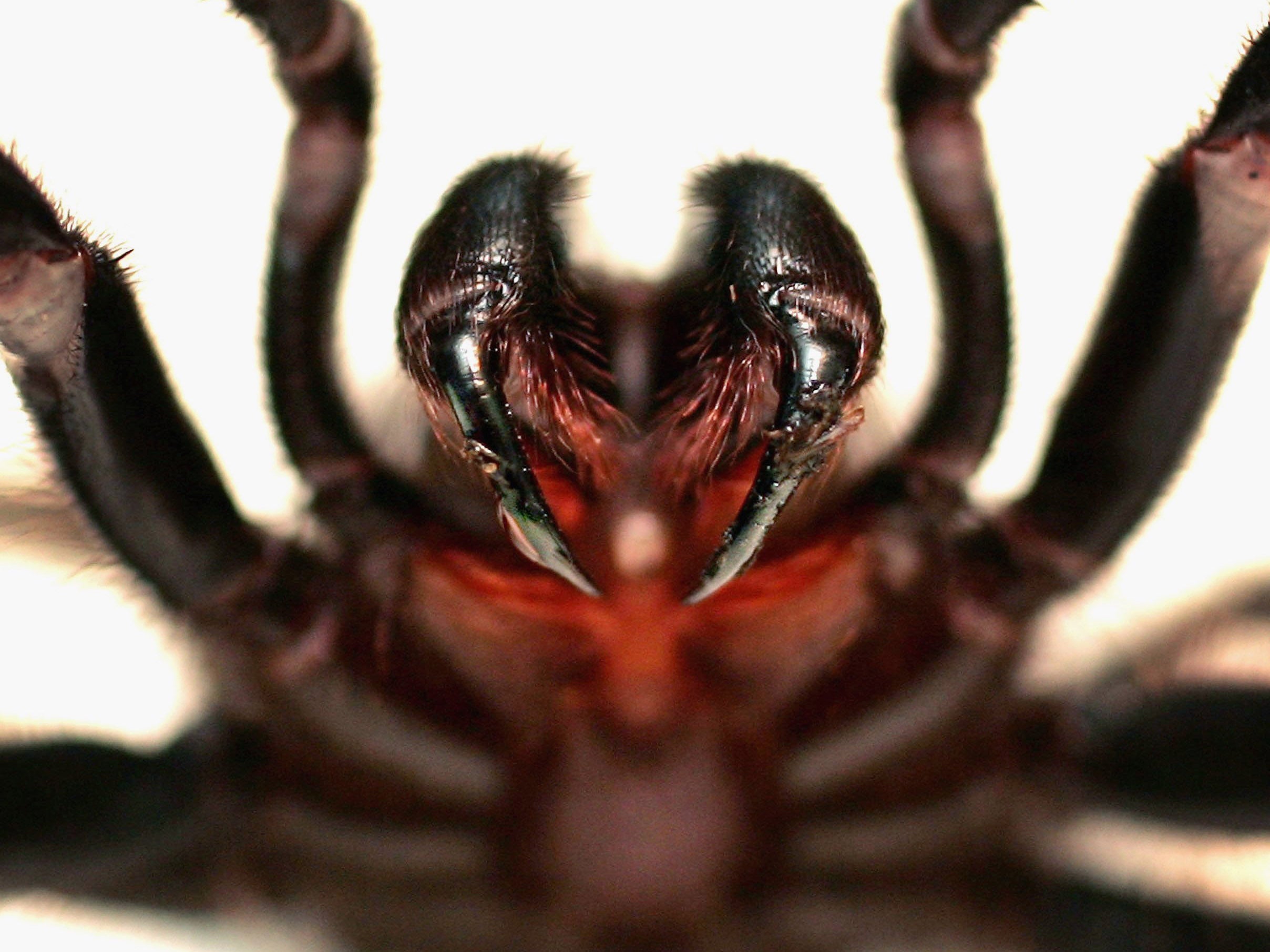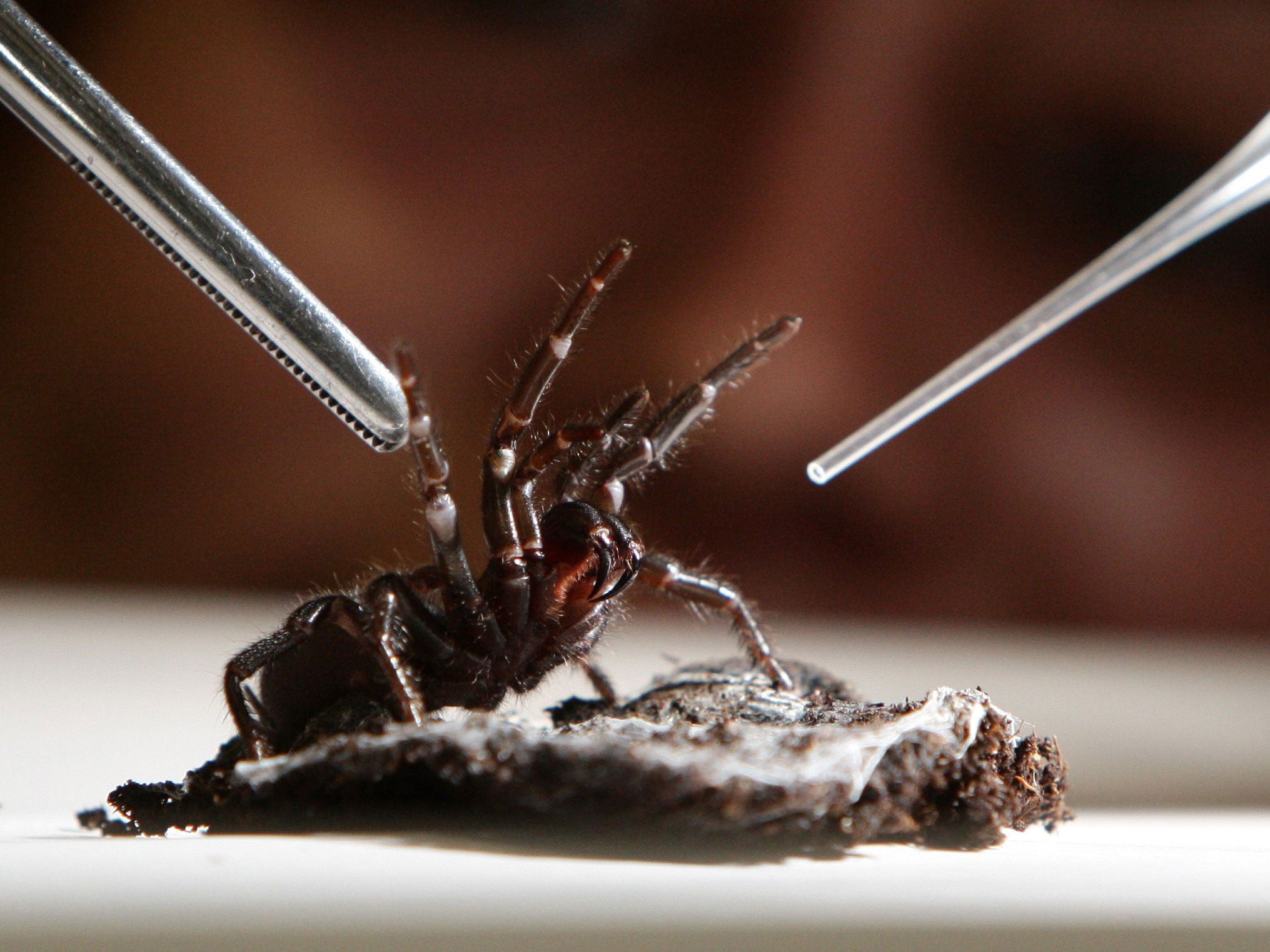Deadly spider venom could stop stroke brain damage, doctors say
Bite from Australian funnel web spider can kill humans in 15 minutes

Your support helps us to tell the story
From reproductive rights to climate change to Big Tech, The Independent is on the ground when the story is developing. Whether it's investigating the financials of Elon Musk's pro-Trump PAC or producing our latest documentary, 'The A Word', which shines a light on the American women fighting for reproductive rights, we know how important it is to parse out the facts from the messaging.
At such a critical moment in US history, we need reporters on the ground. Your donation allows us to keep sending journalists to speak to both sides of the story.
The Independent is trusted by Americans across the entire political spectrum. And unlike many other quality news outlets, we choose not to lock Americans out of our reporting and analysis with paywalls. We believe quality journalism should be available to everyone, paid for by those who can afford it.
Your support makes all the difference.Venom from the deadliest spider in Australia could hold the key to creating the world's first treatment for brain damage caused by a stroke.
A protein found in the toxic venom of the funnel web spider was found to help prevent damage to brain cells after stroke in lab rats, said scientists.
Researchers from the University of Queensland and Monash University captured three funnel web spiders, whose bite can kill humans in 15 minutes, for a study.
They used pipettes to 'milk' the spiders for their venom which they analysed, spotting a protein called Hi1a as it resembled two copies of another chemical that can protect brain cells.
The scientists recreated the protein and injected it into rats. They found it blocked ion channels in the brain which are sensitive to acid and play an important role in brain damage after strokes.
In the study, published in the journal Proceedings of the National Academy of Sciences, they described Hi1a as "highly neuroprotective" in models of what happens when someone suffers a stroke caused by a blood clot.

A stroke is a serious and potentially deadly brain attack, which happens when the blood supply to part of the brain is cut off, or when a blood vessel supplying the brain bursts.
Around 85 per cent of strokes are ischaemic, or caused by a blockage or blood clot in an artery or vessel that supplies the brain with oxygen.
Someone in the world has a stroke every two seconds and they occurred 152,000 times in the UK in 2016, according to the Stroke Association.
“This world-first discovery will help us provide better outcomes for stroke survivors by limiting the brain damage and disability caused by this devastating injury,” said Glenn King, who led the research.
"Hi1a even provides some protection to the core brain region most affected by oxygen deprivation, which is generally considered unrecoverable due to the rapid cell death caused by stroke.“
Kate Holmes, deputy director for research at the Stroke Association, said she welcomed the research but it is still unknown whether the protein could be used in future treatments for humans.
“We welcome any treatment that has the potential to reduce the damage caused by stroke, particularly if this can benefit people who are unable to arrive at hospital quickly,” she said.
“Current treatments must be given in half this time period, and it is too early for us to know if this research can offer an alternative for stroke patients.”
Join our commenting forum
Join thought-provoking conversations, follow other Independent readers and see their replies
Comments